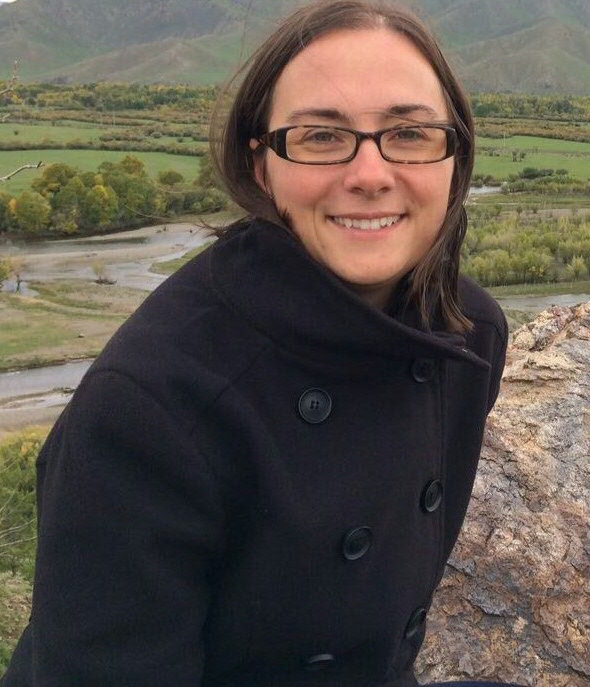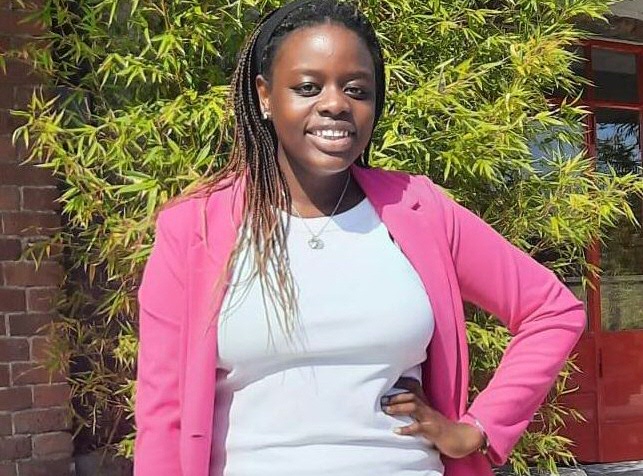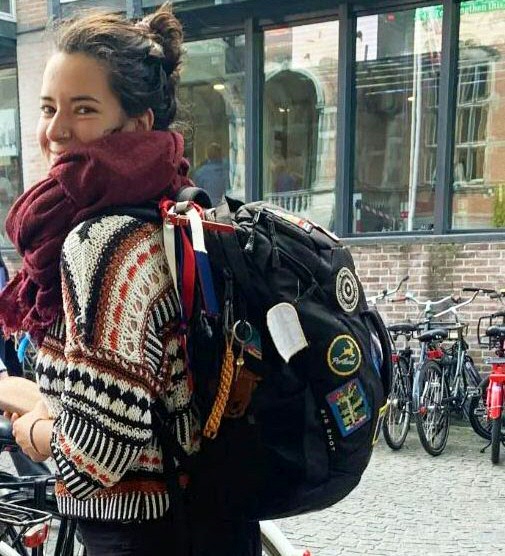
What impact did the recent economic crisis have on individuals' living and working conditions, on individuals' study and career choices, on social inequalities and social cohesion?
The International Master in Social Demography is a Double Degree Programme offered jointly by the Department of Political and Social Sciences of the Universitat Pompeu Fabra (UPF) of Barcelona and the Faculty of Spatial Sciences of the University of Groningen (UG). After successful completion of the programme, students end up with two official diplomas: Master of Research in Sociology and Demography, issued by the University Pompeu Fabra, and Master of Science in Population Studies, issued by the University of Groningen.
The double degree programme, which is entirely offered in English, combines the strengths of two of the highest-ranked Social Science Departments in Europe to offer high level research training in Sociology and Demography.
The programme emphasizes the study of both advanced and developing societies from a unique interdisciplinary and dynamic perspective.
See the flyer: http://www.rug.nl/frw/education/more-education/FlyerDDMSocialDemography.pdf
The program combines the strengths of two of the highest-ranked Social Science Departments in Europe to offer high level research training in Sociology and Demography. It emphasizes the study of both advanced and developing societies from a dynamic perspective, using analytical and methodological tools from two disciplines. The program has a unique approach for understanding how individuals' main life events both influence and are influenced by the social context in which they live.
| CoursesCourse Catalog > |
|---|
| Analysis of Social Inequalities (5 EC) |
| Demographic Changes and Social Dynamics (5 EC) |
| Employment Policies and Labour Market (5 EC, optional) Choose one among:
|
| Family, Gender and Society (5 EC) |
| Health and Inequality (5 EC, optional) Choose one among:
|
| Migrations and Society (5 EC, optional) Choose one among:
|
| Research and Data Analysis Seminar (5 EC, optional) Choose among
|
| Social Policy and the Welfare State (5 EC) |
| Statistical Analysis Techniques I (5 EC) |
| Statistical Analysis Techniques II (5 EC) |
| Semesters | ||||
|---|---|---|---|---|
| CoursesCourse Catalog > | 1a | 1b | 2a | 2b |
| Demographic Data and Analysis (5 EC) | ||||
| Population, Health and Place (5 EC) | ||||
| Qualitative Research for Policy & Practice (5 EC) compulsory for students who apply qualitative methods in their thesis | ||||
| Migration, Families & Households (5 EC) | ||||
| Optional course MSc Population studies (5 EC) | ||||
| Population Projections & Sustainability (5 EC) | ||||
| Master's Thesis Population Studies (20 EC) defense either at UPF or at Groningen | ||||
| Advanced Statistical Analysis (5 EC) | ||||
| Optional course MSc Population studies (5 EC) | ||||
For detailed information on UPF' first year course contents and syllabi: https://www.upf.edu/web/mastersociologydemography/groningen-university More information about these courses can be found on https://www.rug.nl/frw/education/master-info-frw/courses-master-population-studies and
| Specific requirements | More information |
|---|---|
| previous education |
Students must hold a university degree (undergraduate and/or graduate) in a relevant discipline, e.g. the field of social sciences, law, humanities or health sciences, and have a graduation date no later than the start of the programme. |
| additional subject |
Students must have an adequate knowledge of research methods and techniques (students must have taken and passed one statistical course during their previous studies) |
| certified competences |
Students must have demonstrated their English language proficiency by submitting the results of either TOEFL (100 IBT), IELTS (minimum 6.5 overall, no part less than 6.0), or Cambridge Proficiency or Cambridge Advanced (A-B-C) or any other certificate equivalent to B.2.2 |
| language test |
English on VWO level or one of the following equivalents:
A prospective student can always apply for an exemption from the English language test. The student needs to explain, and if required show proof of, why an exemption would be justified. It is up to the Admission Board to decide whether an exemption will be granted or not. |
| other admission requirements |
Students with a non-Dutch previous education can apply through either institution. All applications will be looked at by both institutions. Students with a Dutch previous education can contact Billie de Haas (b.de.haas rug.nl) to apply for the Double Degree. After that you can register for the Master of Research in Sociology and Demography at UPF for your first year. You don't need to register in Groningen yet. You do that in your second year. If accepted, students will receive one joint admission letter. Double Degree students are not admitted to the separate master programs offered within the double degree, but to the complete joint program only. To graduate, they must pass all the requirements of the double degree program. Students who wish to apply for admission to the double degree through the UPF need to follow the procedure set up for all students who request admission into UPF's Research Master in Sociology and Demography. In the required letter of motivation for admission, please indicate CLEARLY your interest to apply for the double degree (Master in Social Demography with the University of Groningen). More information and register here for UPF: https://www.upf.edu/web/mastersociologydemography/groningen-university |
| Type of student | Deadline | Start course |
|---|---|---|
| Dutch students | 01 May 2026 | 01 September 2026 |
| EU/EEA students | 01 May 2026 | 01 September 2026 |
| non-EU/EEA students | 01 May 2026 | 01 September 2026 |
Please check the UPF website for details about the application deadline
| Specific requirements | More information |
|---|---|
| previous education |
Students must hold a university degree (undergraduate and/or graduate) in a relevant discipline, e.g. the field of social sciences, law, humanities or health sciences, and have a graduation date no later than the start of the programme |
| additional subject |
Students must have an adequate knowledge of research methods and techniques (students must have taken and passed one statistical course during their previous studies) |
| certified competences | |
| entry test | |
| language test |
English on VWO level or one of the following equivalents:
A prospective student can always apply for an exemption from the English language test. The student needs to explain, and if required show proof of, why an exemption would be justified. It is up to the Admission Board to decide whether an exemption will be granted or not. |
| other admission requirements |
Students with a non-Dutch previous education can apply through either institution. All applications will be looked at by both institutions. Students with a Dutch previous education can contact Billie de Haas (b.de.haas rug.nl) to apply for the Double Degree. After that you can register for the Master of Research in Sociology and Demography at UPF for your first year. You don't need to register in Groningen yet. You do that in your second year. If accepted, students will receive one joint admission letter. Double Degree students are not admitted to the separate master programs offered within the double degree, but to the complete joint program only. To graduate, they must pass all the requirements of the double degree program. Students who wish to apply for admission to the double degree through the UPF need to follow the procedure set up for all students who request admission into UPF's Research Master in Sociology and Demography. In the required letter of motivation for admission, please indicate CLEARLY your interest to apply for the double degree (Master in Social Demography with the University of Groningen). More information and apply here for UPF: https://www.upf.edu/web/mastersociologydemography/groningen-university |
| Exam | Minimum score |
|---|---|
| IELTS overall band | 6.5 |
| TOEFL internet based | 90 |
| Type of student | Deadline | Start course |
|---|---|---|
| Dutch students | 01 May 2026 | 01 September 2026 |
| EU/EEA students | 01 May 2026 | 01 September 2026 |
| non-EU/EEA students | 01 May 2026 | 01 September 2026 |
Please check the UPF website for details about the application deadline
| Nationality | Year | Fee | Programme form |
|---|---|---|---|
| EU/EEA | 2025-2026 | € 2601 | full-time |
| non-EU/EEA | 2025-2026 | € 21400 | full-time |
Scholarships: Check the Study in NL website for information about scholarships.
Students are expected to follow our Bring Your Own Device (BYOD) policy. For more detailed information about laptop requirements, please visit this webpagePractical information for:
The objective of the programme is to train young professionals and social scientists in the theories, analytical and methodological tools from both sociology and demography to conduct high quality research on how individuals' main life events (e.g. childbirth, education, marriage, occupation, divorce, death) both influence and are influenced by the social and geographical context in which they live.
The program emphasizes the study of both advanced and developing societies from an unique interdisciplinary and dynamic perspective.
After graduation you can find work in business, the government, or non-governmental organisations (NGOs). Demographers are trained to work with and interpret large data files. You can use these skills to make policy or develop programmes. You can also pursue an academic career and apply for a PhD position.
During the programme at the University of Groningen we offer support for your career preparation.
More information about the FSS Career Services.
The Master's thesis topic is integrated in the research theme of the Population Research Centre: “Population and Wellbeing in Context” and in the research theme of the socio-demographic research group of UPF.
See: http://www.rug.nl/research/ursi/prc/research/ and http://www.upf.edu/demosoc/
These research themes comprises topics such as: population decline, population ageing, social and economic inequality, global migration, life of migrants, healthy ageing in society, the sociology of the family, households, residence, studies on the labor market and working life, causes of death, child health, nutrition, access to health care, place making of elderly, and the assessment of social policies.
The double degree programme clearly reflects the major characteristics of the research programmes at PRC and UPF by focussing on both the macro (population) and micro level (the demographic behaviour of people); by adopting multi-disciplinary perspectives (demography, epidemiology, anthropology, geography, social ageing, nutrition); by teaching both quantitative and qualitative research methods; by focusing on the translation of research into policies or interventions.
The students are being taught the theories, methods and skills that the different teachers apply in their research. They participate in seminars and discussion groups in an active research environment including guest lectures and seminars by established professionals from other demographic institutions.
Part of the second year in Groningen is the participation in the Dutch Demography Day - a conference for demographers - and an excursion to the Netherlands Interdisciplinary Demographic Institute in The Hague.
Featured researchers

After my bachelor studies in East Asian Studies and Psychology at the University of Groningen, I was looking for an interdisciplinary programme that would support me in broadening my horizon and developing research skills. Since quantitative skills were only a small fraction of my earlier studies, the double degree programme in Social Demography allowed me to gain substantive theoretical knowledge and practical expertise.
I also appreciated the range in subjects that became available through the programme. When I saw the programme I just knew: this is it!
I believe that the combination of the programmes in two countries is one of the most valuable elements. Through this, the exposure to international lecturers as well as different types of students from all backgrounds is immense. The exchange generates great ideas and forces oneself to think outside the box. What makes this a great programme is that studying in both countries provides different experiences on all levels: cultures, societies and educational systems vary greatly.
If it feels right but you are still hesitant: just go ahead and apply! You won't regret it.
- Antje Bieberstein

After completing my bachelor's degree in Uganda, my primary objective was to further my knowledge in the field of demography, which led me to pursue the Master's programme Population studies at the University of Groningen. Upon my arrival in Groningen, I initially faced unfamiliarity with the university's system and operations. Fortunately, I received invaluable assistance from professors and approachable students, enabling me to quickly adapt to the intricacies of the university's functioning.
The University of Groningen employs cutting-edge technology, ensuring seamless navigation through campus programs such as lectures, exams, and registration. Moreover, the provision of timely email reminders for important tasks minimizes the risk of missing crucial deadlines. I am particularly grateful for the exceptional support extended by Billie de Haas, the head of the department, who diligently assisted me in overcoming various challenges. Even when faced with problems for which immediate solutions were unavailable, she promptly directed me to the appropriate resources.
The university community possesses commendable proficiency in English, facilitating effective communication. This linguistic advantage ensures that individuals encountered during my time at the university were capable of engaging in meaningful dialogue. The students themselves are not only adept communicators but also reliable friends, always willing to offer assistance both inside and outside the classroom. Furthermore, the student ncommunity regularly organizes events designed to foster connections among peers and staff members. Such initiatives create an open and approachable atmosphere, facilitating interactions with faculty and fellow students.
Among the many courses offered, two notable ones are "Qualitative Research Methods for Policy and Practice" and "Qualitative Research Method." These courses provide valuable insights into complex social phenomena, human behavior, and lived experiences. Widely employed in disciplines such as sociology, anthropology, psychology, education, and healthcare, qualitative research utilizes rigorous and systematic approaches to data collection, analysis, and interpretation. It helps uncover profound meanings and understand the diverse perspectives of individuals and communities.
However, it is important to address the housing predicament faced by students. The demand for accommodation exceeds the available supply, posing challenges in securing suitable living arrangements. As an international student from a non-EU country, I encountered difficulties in finding housing. While numerous housing options can be found online, exercising caution and prudently selecting trustworthy sources becomes imperative.
- Delilah Namutebi

After finishing my bachelor's degree in statistics, studying the double Master's Degree in Social Demography (University Pompeu Fabra and University of Groningen) was the best combination to link my interest in social sciences with my existing academic background.Through new inspiring perspectives brought by its broad international context and great professional possibilities, this master's degree is perfect for those who want to develop new skills for social sciences.
This master’s degree allowed me to expand my knowledge and interests on a wide range of fields, from geographies of health inequalities to migration dynamics, while being given the concrete tools to practice research in these areas. The methodology courses were my personal highlight. The combination of qualitative and quantitative methods courses provided me with a resourceful toolkit that I will be confidently able to draw upon in any future academic and professional projects. Moreover, the engaging learning methods and the constant contact with international community make this challenging learning path into an enjoyable master's degree.
Last but not least, students are able apply the new skills taking on different professional opportunities, from research internships within the faculty or in other local and national organisations and companies. With the synthesis of all this aspects, from content and methods courses to its context, I feel prepared and well equipped for future professional experiences both in the public and private sector.
- Júlia Tena